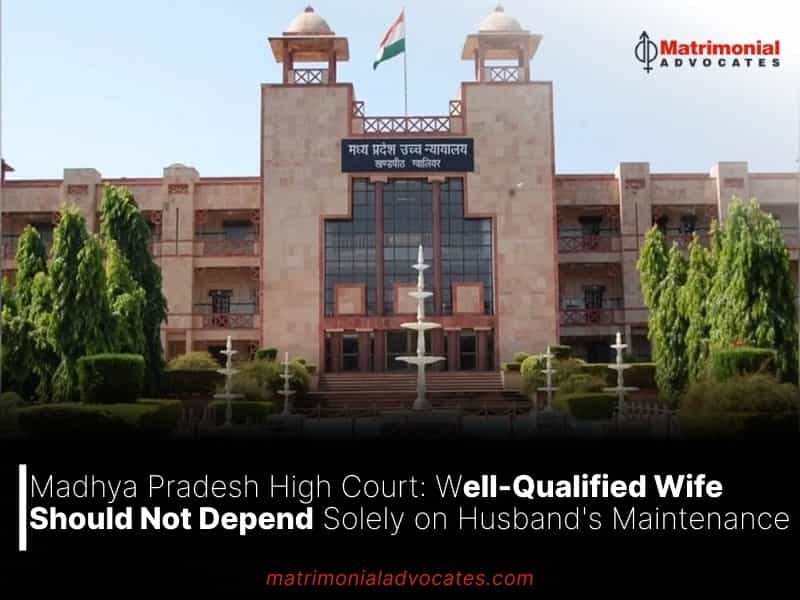
Section 125 of CrPC has not been introduced to create an army of idle or inactive people waiting for maintenance to be awarded from the income of the other spouse, the Court said.
The Madhya Pradesh High Court, on Tuesday, emphasized that well-qualified women should not remain idle or depend entirely on their husband’s maintenance. Justice Prem Narayan Singh remarked that a married woman is not barred from working, and receiving maintenance should not prevent her from earning her own livelihood.
“This Court is of the considered opinion that a well qualified spouses should not be left idle or to remain idle basing on their maintenance amount received from their husband. Nevertheless, Section 125 of Cr.P.C has not been constituted to create an army of idle or inactive people waiting for maintenance to be awarded from the income of the other spouse,” the Court said.
The court was hearing criminal revision petitions from both a husband and wife, contesting a family court’s order requiring the husband to pay her ₹60,000 per month. The wife had earlier sought maintenance from the family court under Section 125 of the Code of Criminal Procedure (CrPC), accusing her husband of harassment. She alleged that he held a senior position at a bank in Dubai.
The husband contended that she was living separately without justifiable cause and often initiated conflicts with him. He also pointed out that she had previously worked at a bank in Dubai and was now earning money by running a coaching center and beauty parlour there.
Both were dissatisfied with the family court’s maintenance order; the wife argued that the amount was insufficient, while the husband requested a reduction, claiming he had lost his job due to a false complaint she had filed, leaving him without any income.
After considering the arguments, the Court initially found the husband’s assertion that he was living in Dubai without a job to be unconvincing. However, the Court also recognized that the wife was well-qualified, with a Master’s degree in commerce and a diploma in shipping and trading, highlighting her earning potential. Consequently, the Court stressed that she should not be granted an excessive amount of maintenance.
“It can be assumed that she can easily earn a good income by indulging herself in any work or business,” the Court said.
In this backdrop, the Court reduced the maintenance amount from ₹60,000 to ₹40,000.





